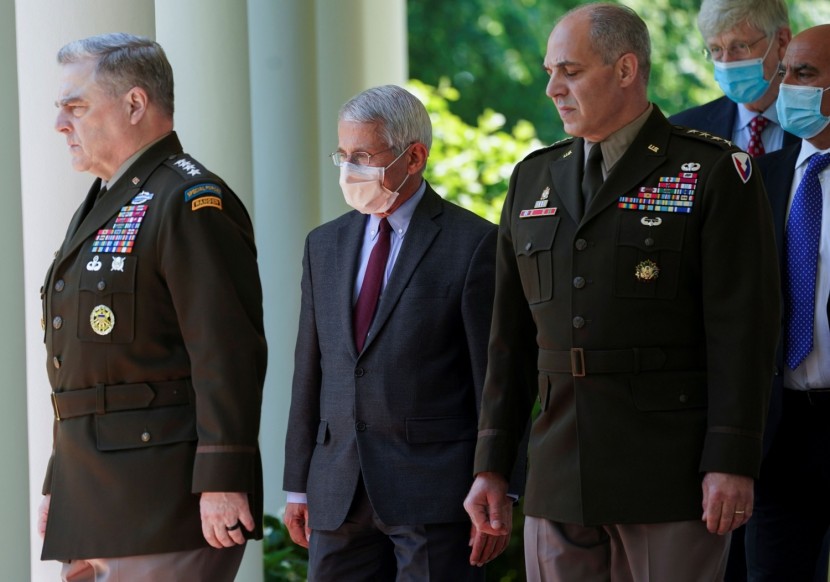
With the US still battling the coronavirus disease (COVID-19) pandemic, fears of a possible second wave of the outbreak have been haunting the nation.
However, a spark of hope ignited as the country's top infectious diseases expert, Dr. Anthony Fauci said that it is possible to prevent COVID-19 from striking a second wave. According to Fauci, while it is inevitable that cases will still emerge in the following months if the country responds properly to the infections that will arise in the fall and winter, a second wave can be avoided.
In an interview with CNN, the National Institute of Allergy and Infectious Diseases (NIAID) director said that the virus will not disappear very quickly especially since the economy has started to re-open. He said that it is unavoidable that new cases will continue to emerge.
Moreover, he stated that the virus is likely to stay since people are traveling and many parts of the world have been affected by the disease, especially since most travel bans have been lifted. He also compared the situation in China of how they were able to suppress the spread of the virus over a period of time, but it came back through travel-related infections.
Nevertheless, Fauci stated that the inevitable emergence of new cases does not automatically mean that a second wave is impending. He noted that the way the authorities, health experts, and people would respond to the new cases will pave a way to stop the new infections from turning into what can be truly considered as a resurgent wave.
"True Second Wave"
In a report by Newsweek, Fauci also stated that he has reservations in using the term second wave in describing a resurgence. He emphasized that the second hit of the virus does not necessarily mean a new major outbreak has to happen.
He also noted that a "true second wave" is defined by the population of a community that is involved. He added that a resurgence can be considered a true second wave is the scale reaches the level of the outbreak in Chicago, Detroit, and New Orleans.
Four Months to Prevent a Second Wave
With many states already reporting a plateau in the number of daily cases, there are still several that continues to deal with new infections on a daily basis.
However, according to CNBC, Fauci stated that the possibility of these new cases of becoming a wave will be determined on the response and preparation that will be done in the coming months of June through July.
He also stressed that in these four months, it is essential to make sure that a system is already in place. This includes testing, the capability to conduct the tests, the resources and manpower to perform contact tracing, isolation and identification when the cases reappear by fall.
Moreover, he emphasized that contact tracing is very important in doing this, thus, manpower to perform such tasks is also needed. He said that if there are enough people who have the capability to engage in contact tracing there is a big chance of preventing a resurgence or in layman's term, a second wave.
Related article: Trump Does Not Want to Close US Borders Again if Second Coronavirus Wave Hits
© 2026 HNGN, All rights reserved. Do not reproduce without permission.








